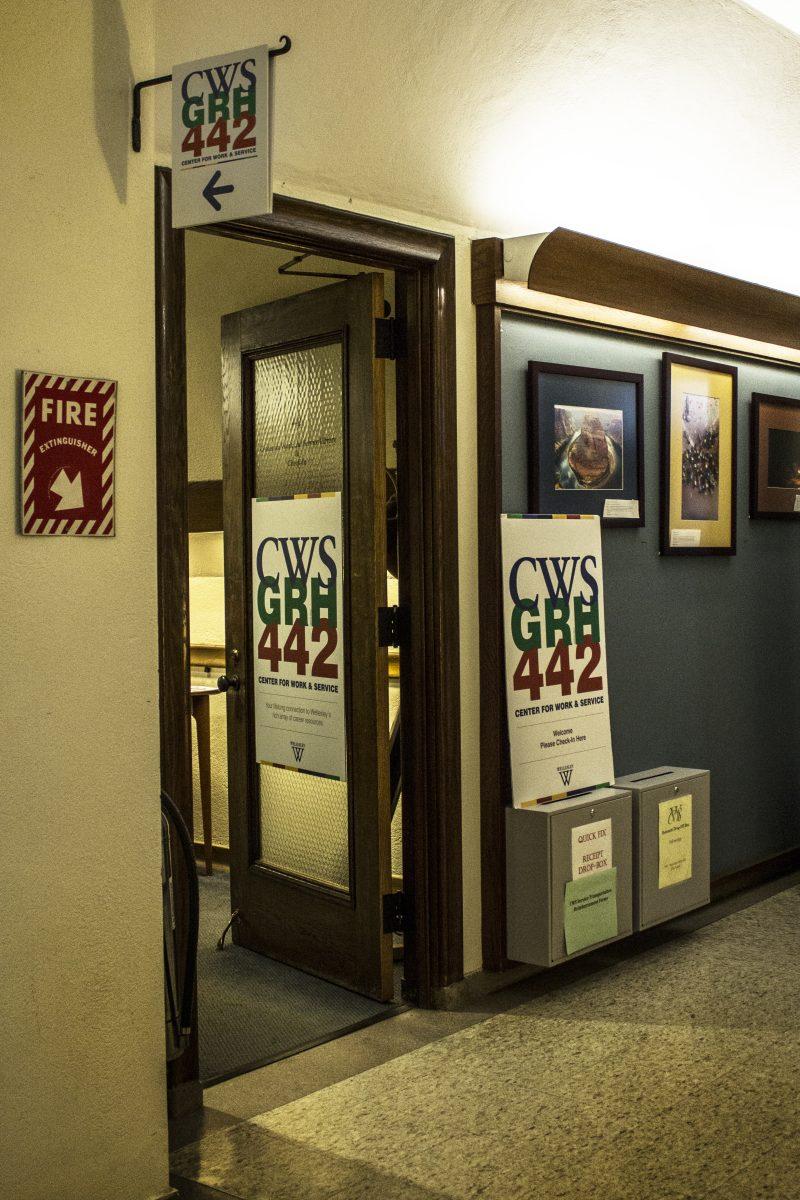Wide-eyed underclassmen are split among eight or so tables in Anderson Forum on a Thursday evening. They have notebooks out, listening to upperclassman with the kind of rapture that every professor wishes they could inspire. These students are attending a networking event sponsored by Wellesley to Wall Street and Investment Society and hoping to gain insight on how to break into the elusive field of finance from Wellesley upperclassman that have already received job offers in those fields.
Pre-professional events like these have increased in frequency due to the creation of several groups on campus hoping to specifically address the professional needs of Wellesley students. This semester has featured the advent of two new clubs: Wellesley to Wall Street and Computer Science (CS) Prep Club.
Wellesley to Wall Street was founded by three seniors, Abby Esrock, Priyanka Fouda and Jacqueline Li, who wanted to use the power of the Wellesley network to help build professional skills starting from campus.
“We realized there is such a large cohort of people who want to go into finance but don’t necessarily have the tools to figure out how to break into that recruiting role,” Li said.
Combining that notion with the strength of the Wellesley network resulted in the creation of Wellesley to Wall Street.
“It occurred to us that the Wellesley network is so strong and so instrumental in helping one another and when we truly work as a group, the results are infinite” Esrock said.
Yuanzhen Pan ’18 and Xiaofan Wu ’18, two computer science majors, started the CS Prep Club when starting the internship search themselves. Students can attend this “small, intimate group,” Sunday at 11 a.m. in the Leaky Beaker.
“As Xiaofan and I began to look at internship opportunities at the beginning of this semester, we did not know what to expect in technical interviews as well as how to improve our coding skills outside of the classroom,” Pan said. “After consulting our professors and our classmates in CS class, we decided to start a CS prep group that connects students who are interested in coding or want to pursue a career in the tech industry.”
By connecting students who are interested in the same industry, students have peers to consult with during the job search and even after, as a support in the industry. Hackathons and tech events are popular for bringing together large groups of tech-oriented people who may not have had a community before.
“We want people to know that they are not alone,” said Pan and Wu about their club. “Generally, we share informations on internships, tech events or hackathons in the area.”
Coming from a liberal art schools, applicants to both Computer Science and finance jobs might be at a loss for how to prepare for interviews.
“For most CS interviews, they are very technical,” said Wu and Pan. “Based on the classes we have taken at Wellesley, we do feel that we have the skills for technical interviews. We are just not sure what kind of questions to expect during interviews and that’s why we wanted to have this group for people like us to practice and build experience.” Wu and Pan recommend the “ Cracking the Coding Interview” workbook which they also use for practice questions during their meetings.
Fouda of Wellesley to Wall Street emphasized that as a department at a liberal arts school, the economics department is not responsible for teaching finance.
“The econ department is not a finance department. Their job is not to teach you how to model a DCF [Discounted Cash Flow]. It is to teach you how to think critically,” Fouda said.
In regards to stress over technical interviews, “It’s more about proving a thought process and showing you have the know how of how to approach a problem than knowing specifically what a WACC [Weighted Average Cost of Capital] is,” Li explained.
The Wellesley to Wall Street program, in collaboration with the other finance oriented organizations Wellesley Investment Society and Wellesley Portfolio Initiative, hopes to give students a general “framework” on how to approach the recruiting process, which involves guides to technical prep but also valuable skills like networking and interview strategies that are especially relevant to finance.
Wellesley students who are interested in learning about finance in a classroom setting can also cross-register at MIT and Babson and draw from the technical guides like the Vault Guide, which has several options for a variety of finance jobs.
Job anxiety is common at Wellesley especially considering the number of high achievers found here. These clubs also hope to increase numbers in industries that have been traditionally male-dominated.
However, Esrock mentions that after getting the internship, “Wellesley prepares you very well to be there.”
While for many students the Wellesley network is something that exists solely after graduation, these students hope to create a support system from the beginning of your career that will hopefully see you through it. With these two clubs, students are taking the mythical Wellesley network and making it a bit more tangible.






